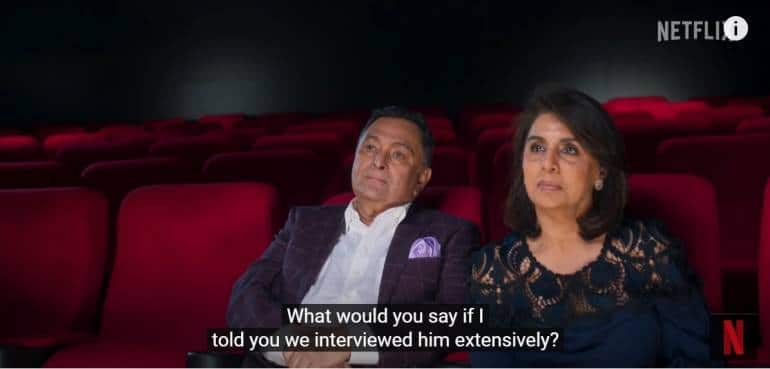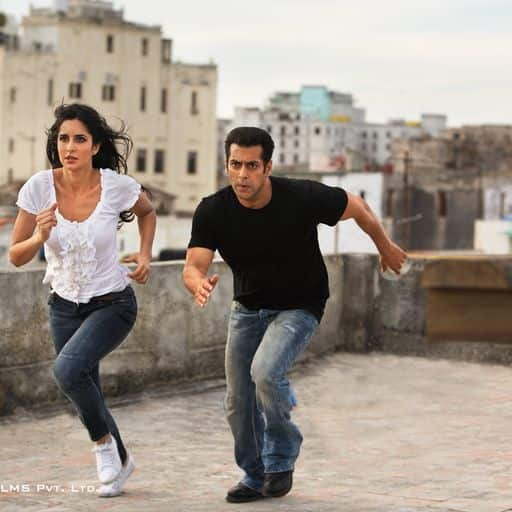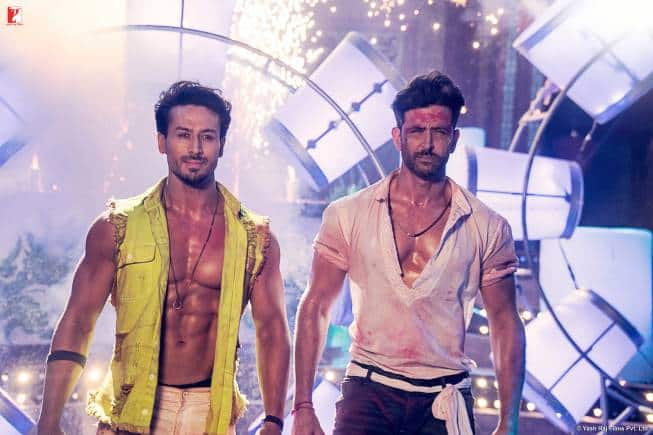



Smriti Mundhra watched the Shah Rukh Khan-led juggernaut Pathaan in a theatre in Los Angeles days before her new series The Romantics dropped on Netflix. “I went to see a 10 pm show in a very quiet suburb in LA, where I live,” she says, sitting in a film studio in suburban Mumbai, not far from the Yash Raj Films’ HQ. “The theatre was packed. I had to sit in the front row. People were hooting, hollering, yelping at the screen. This is what I love about going to the movies, I thought. It had begun to feel like this was gone forever.”
Mundhra, best known for the Netflix series Indian Matchmaking, is delighted by the success of Pathaan, a Yash Raj Films production. To her, it’s the antidote to the existential pall that had descended over the global entertainment industry over the last two years; proof that the collective cinema-watching experience can endure. But also because it’s “great timing for me”, she laughs.
As Pathaan gets closer to joining the Rs 1,000-crore club, further cementing YRF’s place in history, Mundhra’s four-part docu-series that explores the legacy and impact of Yash Chopra arrives just in time to celebrate the production house’s 50 years in business. Through conversations with some of Hindi’s films’ biggest actors, directors, producers, and the late filmmaker’s family, along with film critics—and in a rare screen appearance, Aditya Chopra—The Romantics presents an affectionate portrait of Yash Chopra, and tries to crack the code of what has kept YRF ahead of the curve. Excerpts from an interview.
What inspired 'The Romantics'?I had been wanting to do something that explores the impact of Hindi cinema for a while. Throughout my career and life in the West, at film school and otherwise, we’ve studied all kinds of filmmakers, but never Hindi filmmakers, the ones that I grew up watching. Because Yash Chopra is one of the pre-eminent auteurs of our industry, he seemed like the perfect lens to tell that story; or at least this first iteration of it. I developed the story, the idea, and came to Yash Raj Studios with it. They were incredible and they gave access to all the archives.
 A still from DDLJ, Aditya Chopra's directorial debut filmThe big surprise is that you’ve managed to get Aditya Chopra on screen.
A still from DDLJ, Aditya Chopra's directorial debut filmThe big surprise is that you’ve managed to get Aditya Chopra on screen. That was a long journey (laughs). Initially, that was a very firm boundary, that he doesn’t do interviews, he could talk off the record for context. As the project evolved, it became more than just an academic thing about Yash Chopra; it became a bigger project about his legacy, impact, and how it will endure into the future, his family. It felt incomplete to tell it without their perspective. I said to him: Maybe this is the first and last interview you give, but if you ever do it, this would be the time. That eventually worked on him.
What was the first YRF film you ever watched?I watched Chandni as a kid, and I remember not even wanting to blink. I was transfixed. I didn’t at that time understand the themes, complexities or nuances of the character. It was just Sridevi’s performance, the beauty and the music—it was like being a kid in a candy store.
What is it about Chandni that continues to captivate?When I revisited it as I grew older, what really struck me was that the character of Chandni is one of the most nuanced, complex female characters we’ve ever had in Hindi cinema, period. Of course, she had all the trappings of (a female lead). She had the beauty, the glamour; but beneath all of that, she was a very well-rounded character. As I started seeking that out in films, I started to appreciate that about Chandni.
I watched it again during the making of this series, and this time, I began to appreciate its technical prowess: The aesthetics, but also that it was the archetype for a decade or more of films that, especially for us ’90s kids, was the heyday of Hindi cinema. Chandni was the one that broke the mould; started that chain reaction.
 Rishi Kapoor and Neetu Kapoor in The Romantics.And then a few years later came Dilwale Dulhania Le Jayenge, Aditya Chopra’s debut.
Rishi Kapoor and Neetu Kapoor in The Romantics.And then a few years later came Dilwale Dulhania Le Jayenge, Aditya Chopra’s debut.You know how every generation has that event, where you remember exactly where you were and what you were doing, and you preserve that feeling in the amber? From a pop culture perspective, for so many people around the world, that event was DDLJ. It was a product of its time but also a huge culture shifting moment. It wasn’t unidirectional: It wasn’t like Hollywood films were coming into India or a traditional Bollywood film was being shown in the West. DDLJ brought those two things together, and showed that we are not so far apart, actually. That there is this third space.
It also set the standard for what a big, mainstream, global-appearing film or piece of content needs to be. We’re constantly chasing that thing now—with the globalisation of entertainment with OTTs—that can speak both to a local audience and resonate with people all over the world. DDLJ was a prototype of that.
Your father, the late Jag Mundhra, was also a filmmaker—but of a wildly different variety. How were Yash and Aditya Chopra’s films received or perceived at home?My father actually had a connection with Yash Chopra. He grew up in middle-class Calcutta and was a smart kid, so he studied at IIT Bombay and then went to the US for his Ph.D. But filmmaking was his passion. So he was trying to break into the Hindi film industry in whatever ways. He and my mother leased the Meralta theatre in Los Angeles. They became the first exhibitors of Hindi films in the United States. All of this was before I was born, but this image of this theatre looms so large in my mind.
They really cultivated the immigrant South Asian community in southern California, who’d come all dressed up to the theatre over the weekends and have samosas and popcorn, and watch all these films. They had a premiere of Kabhie Kabhie at the theatre which, I remember him saying, was a big event. Somewhere in that journey—I’m not sure if Yash Chopra came for a screening—they connected, and that’s where their friendship started. I never had the chance to meet him, but always heard wonderful things about his humility and love for cinema. They’ve both passed, and for me, to now be working with his sons on telling Yash Chopra’s story, feels like coming full circle.
 A still from Ek Tha Tiger.Having done this exercise, how would you define the ‘eras’ of YRF?
A still from Ek Tha Tiger.Having done this exercise, how would you define the ‘eras’ of YRF?The eras are, I think, defined by the stars of each generation. There was the Amitabh Bachchan era, the Shah Rukh Khan era (which doesn’t look like it’ll ever end) and the Ranveer Singh era. The Amitabh era was basically Yash Chopra and the actor both exploring their range; from Deewar to Kabhie Kabhie. The films that Shah Rukh Khan did with Yash and Aditya Chopra defined the 1990s but it also became the defining era for Yash Raj Films. It was the start of his own romantic period.
Then came the Ranveer Singh era—which you can also call the Anushka Sharma era. All the talent that grew as the studio grew reflects the growth of the industry away from just the 4-5 individuals or 2-3 families that had a stronghold. I think there was a recognition at the time that as the industry grows and the country becomes younger, you need a greater diversity of talent that is also younger.
What have you learned about being a filmmaker with making 'The Romantics'?We have a lot of amazing filmmakers in this industry who’ve built a legacy. But having that legacy endure, generation after generation, long after you’ve passed is really difficult. That, I think, is really unique to Yash Raj Films.
His legacy proliferates not only to his own next of kin, but to so many filmmakers that have been cultivated in his image. In making the series, and examining the history of our industry—seeing how difficult that really is, how there were so many points in that story that that chain could’ve been broken and everything could’ve fallen apart—those key decisions that kept the studio enduring were really remarkable.
 Tiger Shroff and Hrithik Roshan in 'War', a YRF Spy Universe film.What is Yash Chopra’s greatest legacy, from a filmmaker’s perspective?
Tiger Shroff and Hrithik Roshan in 'War', a YRF Spy Universe film.What is Yash Chopra’s greatest legacy, from a filmmaker’s perspective? I think it’s one of just letting passion lead you. It’s not even just passion for filmmaking. That we know: Yash Chopra was happiest on set. But also a passion to share things with the world. It’s so beautifully uncynical. He loved to create things and share them with the world and connect with them and delight over them. I see that enduring through his legacy at the studio.
We talk a lot about how things are ageing these days. What aspects of YRF have aged better than others?Ironically, some of Yash Chopra’s earliest films have aged very well in terms of their depictions of the socio-political climate, the way they deal with the complexity of human relationships. I can’t believe a film like Dharmputra was made in 1960, or Silsila or Kabhie Kabhie, in the 1980s. It’s remarkable to think that in some of the most commercial films of their time, with the biggest stars, we’re talking about things like infidelity or polyamory.
Beyond that, I really try to resist looking at work from previous decades or generations from a present-day lens. We evolve as a culture. Who knows what people will look back at 20-25 years later and cringe: what we wore, what we thought, or spoke (laughs). Sometimes we evolve away from certain ideals, and often it is some works of art that create that debate and dialogue that help us evolve. So to look back and judge doesn’t feel fair because you have to look at a work of art for what it is, in the context of its time. That is what we are trying to do with The Romantics; it is all about the context of its time.
The Romantics is streaming on Netflix now.
Discover the latest Business News, Sensex, and Nifty updates. Obtain Personal Finance insights, tax queries, and expert opinions on Moneycontrol or download the Moneycontrol App to stay updated!
Find the best of Al News in one place, specially curated for you every weekend.
Stay on top of the latest tech trends and biggest startup news.